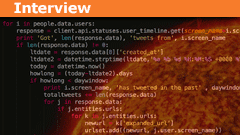Interview with a Physics Mentor: PeterDonis
PeterDonis is a Physics Mentor at Physics Forums
Give us a little background on PeterDonis
I have been interested in science since childhood. I have two degrees in Nuclear Engineering, but they were actually in the field of fusion, not fission, so they might just as well have been labeled as degrees in plasma physics. However, I was also Navy ROTC, and spent six years in the U. S. Navy after graduation; and by that time I didn’t really see any future in going back to the field of nuclear fusion. I have spent my career since in what, broadly speaking, might be called project management (which I had actually spent a good part of my Navy career doing as well). I am married, with no children, but we have two dogs that think they are people.
What was it about physics that drew your interest?
I can’t remember exactly how old I was when I started reading Isaac Asimov’s non-fiction, but I think I was still in elementary school. For years he wrote a monthly column for the Magazine of Fantasy & Science Fiction, and every year or two a collection of the latest batch of columns would be published in book form. I started reading those, and a lot of them were about physics, and I was interested. I eventually read his three-part series of books, Understanding Physics, and liked them.
Then, over the summer between my junior and senior year in high school, I got to take a class in special relativity. The teacher used the 1st edition of Taylor & Wheeler’s Spacetime Physics, and I was hooked. This was neat stuff! That solidified my interest. Of course I took all the standard physics classes in college, but relativity has always been my favorite subject. When I was in graduate school my office mate had a copy of Misner, Thorne, & Wheeler, and I asked if I could borrow it, and that got me hooked on general relativity as well as special.
Who are some of your science heroes and why?
My all-time favorite physicist is Richard Feynman. He was not only brilliant at physics, he was brilliant at explaining physics. He also conveyed a deep love of the subject, probably more so than any other physicist I know of except possibly Einstein. And he had a great sense of humor.
Of scientists alive today, I think Freeman Dyson is an excellent example of what a scientist should be. He’s not afraid to express unpopular or non-mainstream opinions; he can always back up what he says with data and good arguments; and as far as I can tell, he has no ideology beyond a desire to understand how the universe works. He also probably has the broadest, most varied scientific experience of any scientist alive today, and he might well be in the top ten or better of all time in that respect.
What are some of your favorite books, movies, music?
Books (fiction): The Lord of the Rings, Day of the Jackal, all of the Lord Peter Wimsey stories, The Doorbell Rang (one of the Nero Wolfe mysteries–I like all of them but that one is my favorite).
Books (nonfiction): QED (Feynman), The Character of Physical Law (Feynman), Godel/Escher/Bach, Freedom Evolves (Dennett–I like all of his books but this one is probably the best, it ties together a lot of things), The Ancestor’s Tale (Dawkins), The Lives of the Caesars (Suetonius–basically the People magazine of the early Roman Empire), Parkinson’s Law.
Movies: Strangers on a Train, Rear Window, Dr. Strangelove, Buckaroo Banzai, The Sting, Silverado.
Musicians: Billy Joel, Mozart, Bach, Gilbert & Sullivan.
What are some of your all time favorite RPGs?
The only one I have any real experience with is D&D–but that experience spans 4 editions of the game; 5 if you count the “Original” D&D in the little booklets; or even 5 1/2 if you count D&D 3.5 as “half” an edition (since it was significantly different from 3.0). I have tried Traveller and GURPS, but only briefly.
Tell us about your interest in Python and open source projects.
I have been programming since high school, and have been programming in Python since the early 2000s. Python is easily my favorite language of all the ones I have used (which includes BASIC–meaning the original kind that came on IBM PCs–DOS batch files, x86 assembly, Pascal, C, C++, Visual Basic, Java, Javascript, Lisp, HTML/CSS–if you call that a programming language–Unix shell script, PHP, and Python). Python seems to be the best fit to the mental model of programming that I have in my brain (this seems to be true of a lot of people, which is why Python is often called “executable pseudocode” and is widely used as a teaching language), so I can be very productive in it; plus, it’s a very high-level language in that you can do a lot with a relatively small amount of code.
I like open source because I like being able to look at the internals of programs and figure out how they work, especially if I am going to be writing programs myself that use a particular language or library. (For example, I’ve spent a fair amount of time digging through particular parts of Python’s source code figuring out how various internals of Python work.) Also, of course, there are issues of freedom involved, which gets into the next question.
Why are the issues of censorship and net neutrality important to you?
Because I think personal computers and the Internet are the biggest advance in individual freedom and empowerment in human history, and I don’t want to see that squandered by shortsighted pandering to special interests. A site like PF, for example, could not exist under the centralized-control model that keeps getting pushed by certain industry players; the cost of staying connected at reasonable bandwidth and keeping up with burdensome regulations would simply be too high for anyone except large corporations (which is, of course, why this model is pushed by large corporations). Fortunately, so far the tech community has mobilized quickly and vocally when necessary (for example, in getting SOPA and PIPA stopped in the US Congress); but it’s an ongoing battle.
You recently published an Insight “Why Won’t You Look at My New Theory?“. What would be a few pieces of advice to someone who thinks they have a new theory?
I think we pretty well covered that in the discussion thread.  But to boil it down to essentials: before you even consider trying to construct a new theory, first learn everything that is currently known in the appropriate field. And before you consider trying to get someone else to look at your new theory, be sure you can explain exactly what is missing from current theories, in terms that experts in the current theories would understand and agree with, and how your new theory includes it.
But to boil it down to essentials: before you even consider trying to construct a new theory, first learn everything that is currently known in the appropriate field. And before you consider trying to get someone else to look at your new theory, be sure you can explain exactly what is missing from current theories, in terms that experts in the current theories would understand and agree with, and how your new theory includes it.
What are some technologies and scientific advancements you are most interested in?
Technologies:
Nuclear power, both advanced fission reactors (e.g., pebble bed, thorium) and fusion reactors. It’s disappointing that when I was getting my Master’s Degree, fusion was supposed to reach ignition fairly soon, and here we are almost 30 years later and fusion is supposed to reach ignition fairly soon. Unfortunately I don’t have any bright ideas for a breakthrough; if I had, I’d still be working in the field.
Solar power, both advanced photocells and solar thermal. The sky is raining soup, energy-wise, and it seems silly not to capture and use as much of it as we can.
Advanced biofuels, such as biodiesel from algae. Another way of capturing more of the solar energy we’re awash in. Also makes a lot more sense than trying to make ethanol out of corn, which has a terrible energy yield comparatively speaking, and makes food scarcer to boot.
The fact that all of these center around energy is not an accident. Cheap, plentiful energy is a prerequisite to a first world standard of living for everybody on the planet. Our current way of getting it–coal, oil, and natural gas, basically–works, but is far from optimal. Even if we put aside concerns about pollution (and climate change, if you think that’s a significant concern–I personally don’t, but obviously many people do), the fact is that those substances can be put to other uses that are potentially much more productive (for example, providing feedstock for various chemical processes such as pharmaceutical manufacture), so it seems a shame to just burn them. (One of my professors used to say that it was great that we could use uranium as a fuel because it was no damn good for anything else.)
Scientific advances:
Quantum gravity. More generally, fundamental physics as an experimental science. The great advances of the 20th century were all driven by new experimental findings. Unfortunately, the pace of those has dramatically slowed; since the early 1970s we’ve basically just been confirming the Standard Model of particle physics and finding that none of the extensions we have come up with so far are panning out. On the gravity front, we have now detected gravitational waves, which is a great thing, but still just confirms that GR is correct and doesn’t show us anything beyond that.
DNA sequencing, and understanding how genotypes are related to phenotypes. We know things aren’t as simple as the pea-plant Mendelian genetics we learned in biology class. But we don’t know very much about how the whole process actually works.
Figuring out how to slow down or even reverse aging. For obvious reasons.
Thanks for your insights and participation PeterDonis!
I have a BS in Information Sciences from UW-Milwaukee. I’ve helped manage Physics Forums for over 22 years. I enjoy learning and discussing new scientific developments. STEM communication and policy are big interests as well. Currently a Sr. SEO Specialist at Shopify and writer at importsem.com








[QUOTE=”PeterDonis, post: 5446920, member: 197831″]So there are reasons why fusion research has not been an obvious candidate for a Manhattan Project/Apollo commitment the way those previous efforts were.[/QUOTE]
One of them being that there is no likely strategic military advantage for a nation to go it alone,it only makes sense in the context of international co-operation.
But then beurocracy, diplomacy, etc, and top heavy management.
[QUOTE=”PeterDonis, post: 5446889, member: 197831″]to do that requires a commitment something like that of the Manhattan Project or the Apollo program, and tokamak fusion hasn’t had that kind of commitment. ITER has had some PR indicating that it is supposed to be that kind of commitment, but it isn’t.[/QUOTE]
I should add that there are some key disanalogies between ITER and the other two programs I mentioned. Unlike in the case of fusion, in the case of fission the controlled reaction yielding energy came first–Fermi’s experiments–and then the bomb. Also, the conditions for a chain reaction turned out to be relatively easy to achieve–the fuel is solid, not plasma.
In the case of the Apollo program, the rocket engines involved were operating at the limits of what could be achieved with known materials and fuels, but the basic physics involved was so simple–basically the rocket equation and orbital mechanics–that there was no doubt that rocket engines of sufficient power could get a spacecraft to the Moon. Whereas with fusion, much of the research over the years has been trying to establish the basic physics–what kind of plasma configuration do you need to achieve the Lawson criterion?
So there are reasons why fusion research has not been an obvious candidate for a Manhattan Project/Apollo commitment the way those previous efforts were.
[QUOTE=”atyy, post: 5444281, member: 123698″]Are ITER’s goals technically feasible?[/QUOTE]
This is probably worth a whole post and discussion thread in itself (and also there are regulars in the Nuclear Engineering forum whose knowledge is more up to date than mine and could give a better answer). It seems to me that tokamak fusion has ended up being a much more difficult and costly path than it was expected to be. But at least a fair portion of that is due to issues that are bureaucratic, not technical. We know the plasma conditions we need to achieve: the [URL=’https://en.wikipedia.org/wiki/Lawson_criterion’]Lawson criterion[/URL]. We know there are a number of issues that have to be carefully managed to run a tokamak under those conditions; but at least to an extent we can manage them by brute force while we experiment with ways to do it more cheaply. But to do that requires a commitment something like that of the Manhattan Project or the Apollo program, and tokamak fusion hasn’t had that kind of commitment. ITER has had some PR indicating that it is supposed to be that kind of commitment, but it isn’t.
[QUOTE=”Greg Bernhardt, post: 5444019, member: 1″]I just wanted to say I admit I even wrote my own D&D style stories. I think they were pretty good![/QUOTE]
I wrote a bunch of them too; in fact I often wondered if one of my reasons for playing D&D was to generate material for the stories. :wink:
[QUOTE=”Greg Bernhardt, post: 5444019, member: 1″]Have you looked at [URL=’https://www.rust-lang.org/’]Rust [/URL]as a programming language?[/QUOTE]
Only glanced at it. The programming I do doesn’t really seem to fit its main use case, which is systems programming. Also, it has the same problem that I attributed to Go in this post on my blog a while back:
[URL]http://blog.peterdonis.com/rants/delimiters-suck.html[/URL]
What a great interview, I do agree that gravity knowledge is stalled at the moment only confirming today’s theories , and my own theory about accelerative expansion (see my discussion on Gravity) is only a confirmation of existing knowledge. I do hope that gravity is explained in my lifetime.
Are ITER’s goals technically feasible?
I just wanted to say I admit I even wrote my own D&D style stories. I think they were pretty good!
Have you looked at [URL=’https://www.rust-lang.org/’]Rust [/URL]as a programming language?
What a great interview, I do agree that gravity knowledge is stalled at the moment only confirming today's theories , and my own theory about accelerative expansion (see my discussion on Gravity) is only a confirmation of existing knowledge. I do hope that gravity is explained in my lifetime.